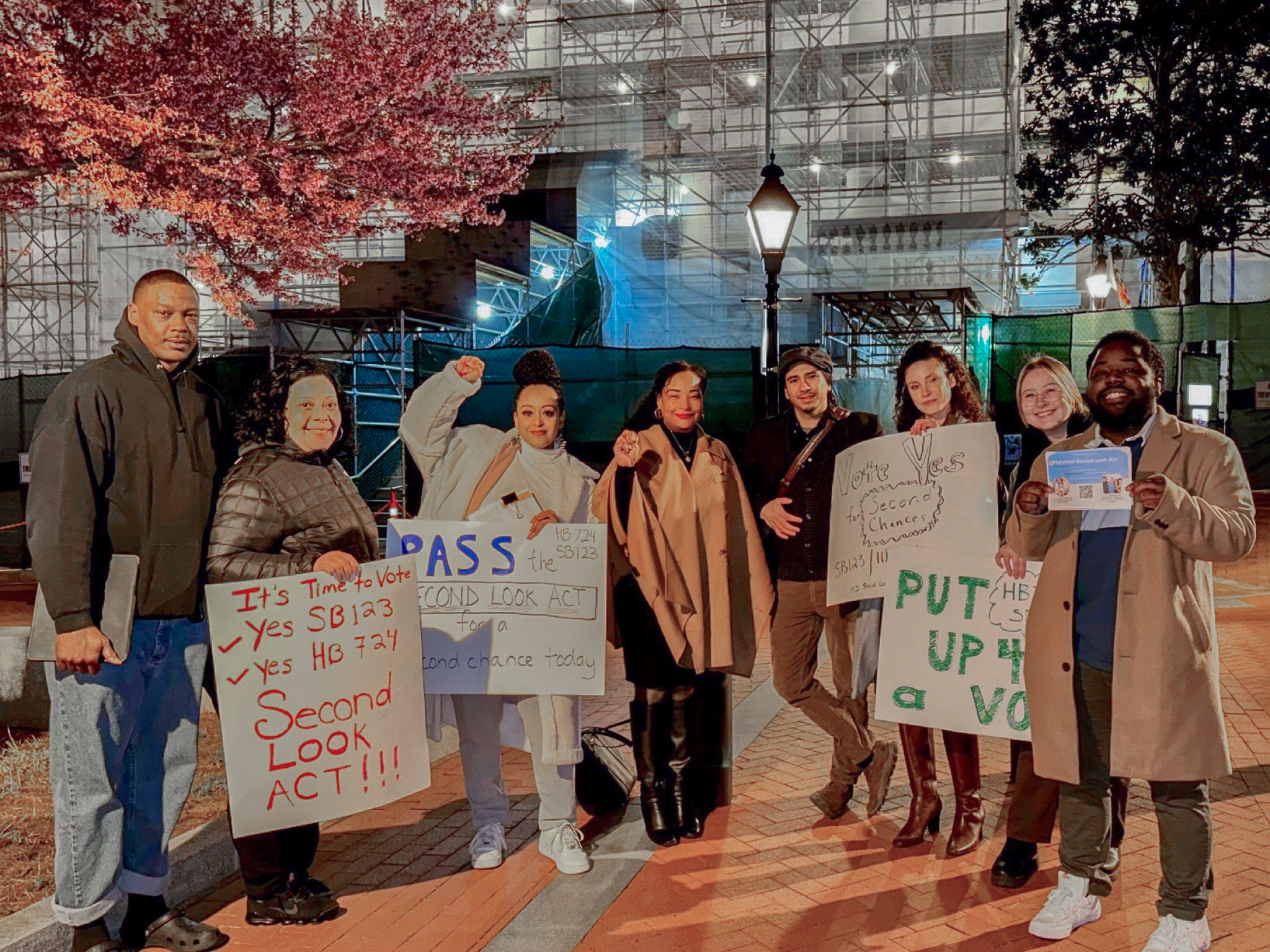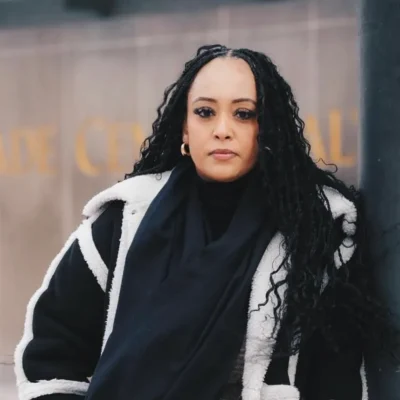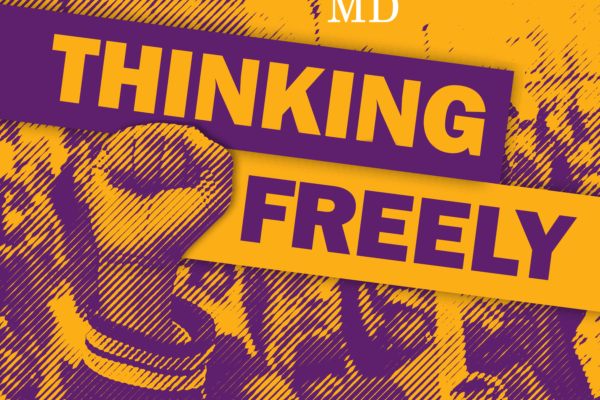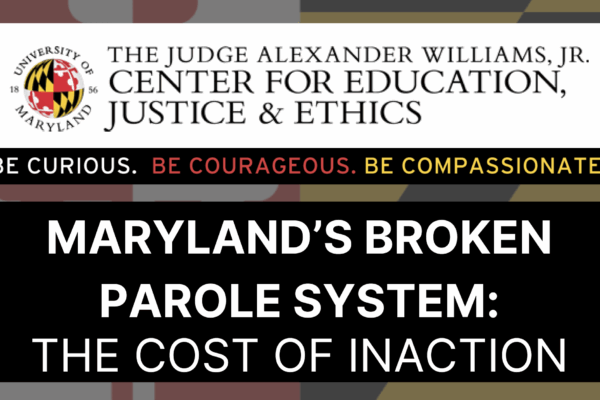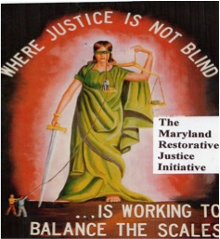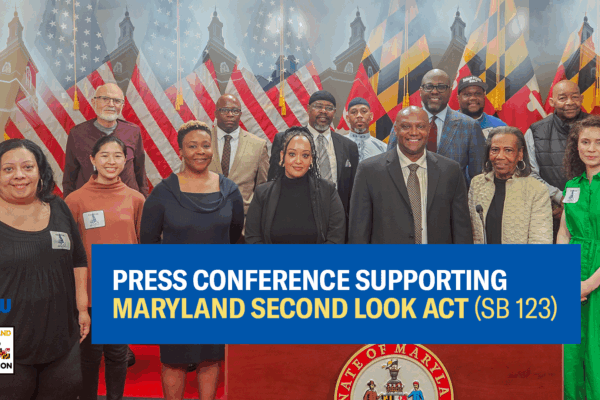Thankfully, legislators are listening to this positive movement, led by mostly Black families, people who’ve come home, and their loved ones. Let’s join them to support the Maryland Second Look Act and the power of people to change.
Tell your legislators to pass the Maryland Second Look Act (SB 123).
The chance to be considered for who they are today, based on their demonstrated rehabilitation – not a guarantee. That’s what Marylanders who already have earned their release, together with the many Marylanders who have worked for years to change and are eager to show they have been rehabilitated, are asking for now.
The Maryland Second Look Act would allow the court, after at least 20 years served, to modify or reduce a sentence based on demonstrated rehabilitation. It acknowledges the fundamental truth that people do change, offering a path toward mercy and reconciliation.
With the Maryland Second Look Act, people can express their genuine remorse and maintain focus on their transformation without worrying that, as any lawyer will advise, conceding guilt would eliminate any chance to revisit an extreme sentence. It also represents hope to the disproportionately Black families who have been the “collateral damage” of our current broken system. It shows that the state is actively acknowledging and rectifying past instances of bias and committing to equitable treatment for all those in its custody.
Shamefully, Maryland incarcerates the highest percentage of Black people in the country, at 71 percent of our prison population, more than twice the national average. Maryland also leads the nation in sentencing young Black men to the longest prison terms, at a rate 25 percent higher than the next nearest state – Mississippi.
As of 2016, in Maryland, 66 percent of people serving life without parole were Black. A Sentencing Project analysis found that being Black and young has produced a substantially larger share of these extreme sentences than being Black alone.
For decades, thousands of Marylanders have not been evaluated on their merits, instead languishing under the weight of laws and policies that were crafted without consideration for fairness, racial justice, or our evolving understanding of brain development and impact of trauma.
Maryland’s prison system is filled with Black people who were excessively sentenced or denied parole based on “superpredator” mythology and “lock them up and throw away the key mentality.” One extreme consequence is that, now, the only way for someone in Maryland serving an extreme sentence to have their sentence reviewed at all is by challenging the constitutionality of the conviction itself. Maryland judges also used to have the ability to review sentences – an important safety valve for extreme sentences – but the state eliminated that process in 2004.
For more than 25 years, Maryland's parole system also was not available to people serving life with parole sentences, which bloated the prison system and its extreme racial disparities. Now, the Governor has finally been removed from most parole cases. But this is not enough to remedy decades of a system that wrongly denied people parole and treated them as if they would die in prison.
In the immediate aftermath of a serious harm, emotions are high, and it may be difficult for a sentencing judge to determine a person’s capacity for change. But many years later, a judge can assess a person’s growth, progress, and rehabilitation behind bars based on their actual track record, not guesswork.
Many people who are themselves survivors of violence and who want our communities to feel safe are at the core of the Second Look Movement. They believe in the possibility of redemption and the need to move our legal justice system towards outcomes that are restorative. They are joined, in fact, by Prince George’s County State’s Attorney Aisha Braveboy and Baltimore City State’s Attorney Ivan Bates – prominent Black prosecutors from the two jurisdictions with the most cases at stake.
(Anthony Muhammad, Yanet Amanuel, and Sonia Kumar are in Annapolis advocating for passage of the Maryland Second Look Act. Photo by Lorena Diaz.)
The views of States’s Attorneys Braveboy and Bates are shaped by seeing the incredible contributions Marylanders can make when given the opportunity to return – to become part of the solution to building community and public safety. In Baltimore City, returning citizens are at the heart of efforts to build safety, with many dedicating themselves to mentoring young people, implementing violence prevention initiatives, and just working to support their families.
The Maryland Second Look Act also helps to mitigate the extraction of wealth from communities that occurs when we lock up people who could be positively contributing to their communities for years, often decades, after they have been fully rehabilitated. The costs of their incarceration are borne by their families, and their absence fuels economic and social instability, which we can now restore.
Thankfully, legislators are listening to this positive movement, led by mostly Black families, people who’ve come home, and their loved ones. Let’s join them to support the Maryland Second Look Act and the power of people to change.

